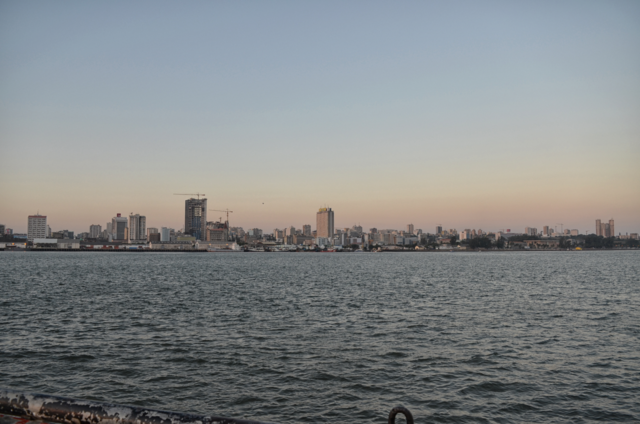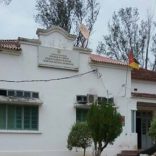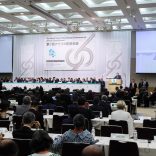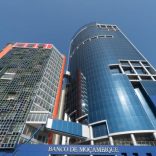Mozambique: Public sector wage expenditure rises 0.2% to €1,424 million in H1
IMF notes economic improvements but calls for more information on debts

File photo / A view of Maputo
The International Monetary Fund (IMF) considers that Mozambique’s economic performance has improved in some sectors since the latter part of 2016, according to a press release issued at the end of a visit by an IMF staff mission.
Whilst the mission found that growth had declined to 3.8 per cent in 2016, it noted that this is expected to increase to 4.7 per cent this year.
One of the key issues on the IMF’s agenda during the visit was the audit carried out by the London branch of the firm Kroll Associates into the three companies Ematum (Mozambique Tuna Company), Proindicus and MAM (Mozambique Asset Management). These companies took out loans totalling over two billion US dollars in 2013 and 2014, which were arranged by the banks Credit Suisse and VTB of Russia. None of the companies have ever been anywhere near being able to repay their loans, and public attention has focused on what the funds were spent on and whether the Mozambican government guarantees that underpinned the loans are valid.
The Staff Mission welcomed the publication of the detailed summary of the Kroll audit report but warned that “more needs to be done to fill the information gaps on the use of loan proceeds”.
At the end of the visit, the head of the team, Michel Lazare, stated that “the decisive October 2016 monetary policy tightening helped rebalance the foreign exchange market and resulted in the metical appreciating by about 30 percent vis-à-vis the US dollar since end-September 2016”.
He added, “this monetary stance contributed also to a decline in inflation from a year-on-year peak of 26 percent in November 2016 to about 18 percent in June, despite a large increase in fuel prices in March”.
Also Read: Breaking: IMF Press Release on the visit to Mozambique – Unabridged
Other positive developments that he noted include the higher international coal prices, which along with an increase in coal export volumes helped narrow the trade and current account deficits. This in turn has led to a large accumulation of international currency reserves.
The IMF mission head also noted that the government “took important steps by removing wheat and fuel subsidies and reinstating the old automatic fuel price mechanism in March”.
On the debt crisis, Michel Lazare’s statement noted that “total public debt, mostly denominated in foreign currency, remains in distress and the government missed external debt payments”.
Regarding the Kroll audit, he stressed, “while the report summary provides useful information on how the loans were contracted and on assets purchased by the companies, critical information gaps remain unaddressed regarding the use of loans proceeds. The team urged the government to take steps to fill the information gaps and to enhance its action plan to strengthen transparency, improve governance, and ensure accountability”.
Also Read: Thumbs down from IMF – By Joseph Hanlon
Whilst in Mozambique, the IMF team met with Prime Minister Carlos do Rosario, Minister of the Economy and Finance Adriano Maleiane, Bank of Mozambique Governor Rogerio Zandamela, Public Prosecutor Beatriz Buchili, senior government officials, representatives from the Assembly of the Republic (parliament), the private sector, and the donor community.
The mission arrived in Maputo on 10 July and completed its trip on Wednesday.













Leave a Reply
Be the First to Comment!
You must be logged in to post a comment.
You must be logged in to post a comment.